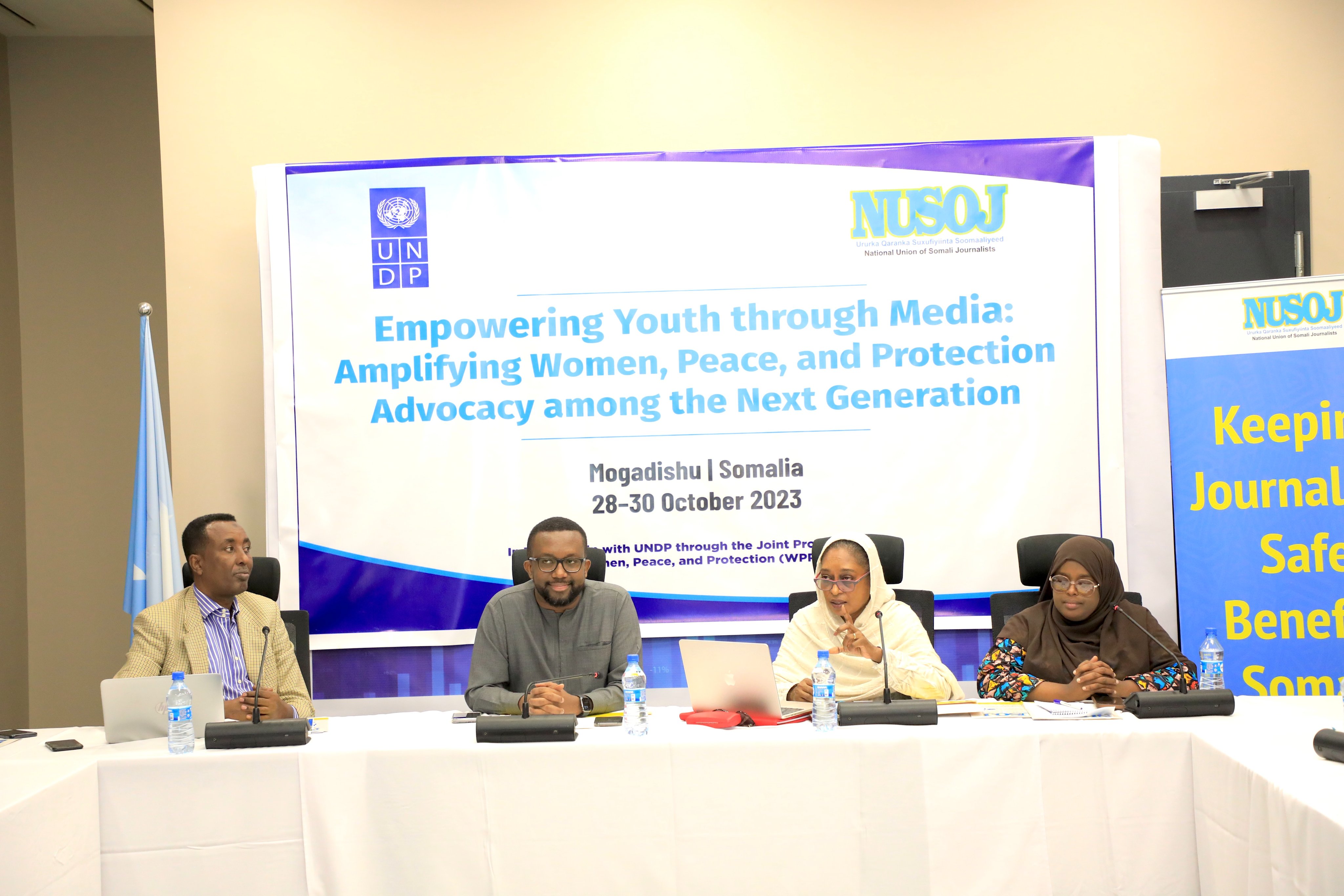The National Union of Somali Journalists (NUSOJ) has concluded a series of capacity building activities on women, peace, and security (WPS) in collaboration with the United Nations Development Programme (UNDP), highlighting the potential impact of collective action and marking a significant advancement in the pursuit of gender equality and an inclusive Somali society.
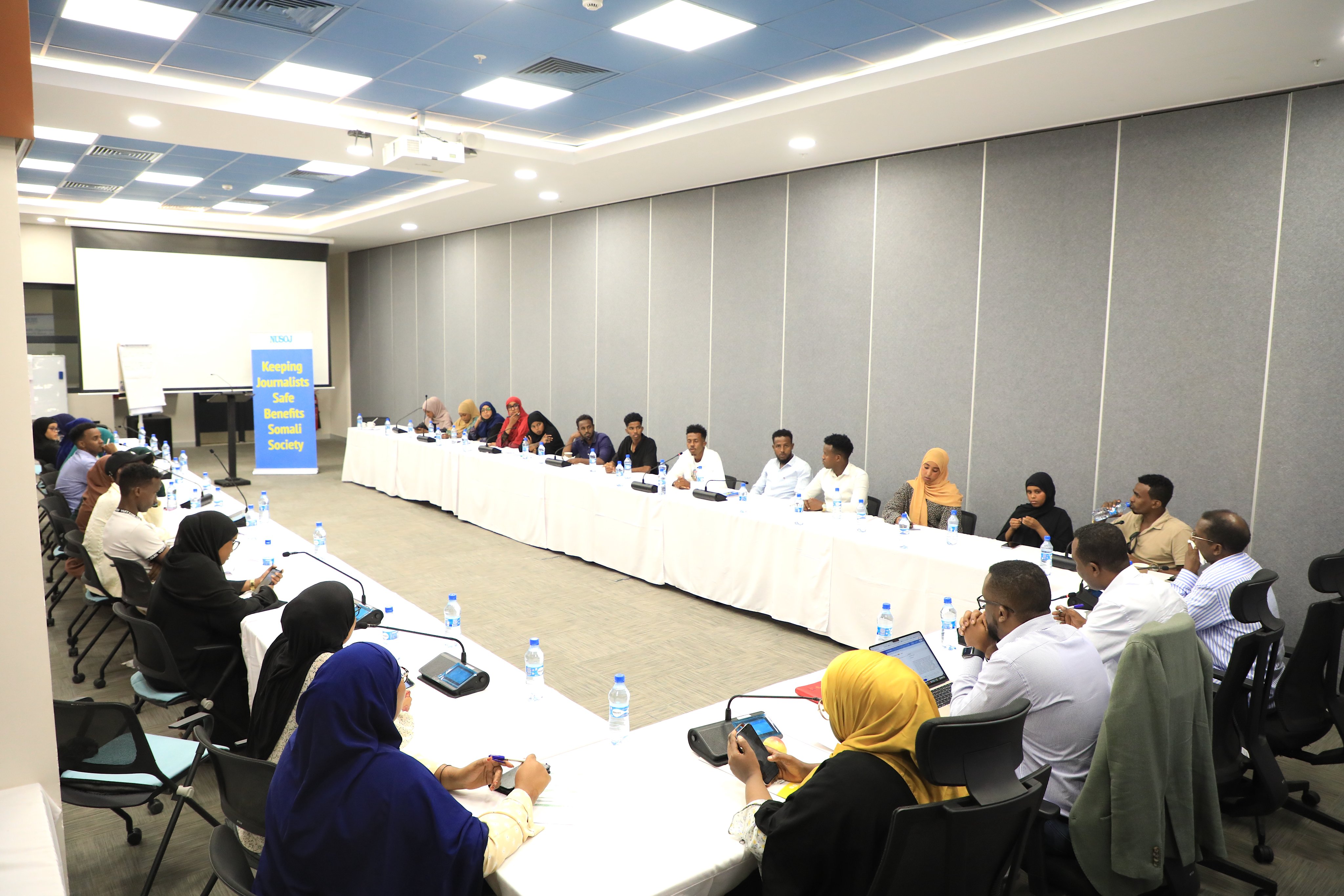
The ground-breaking initiative aimed to empower journalists, women advocates and youth activists from Mogadishu and the five Federal Member States (FMS). By harnessing the power of media, women and youth, the program sought to foster women's meaningful involvement in peace, politics, and security.
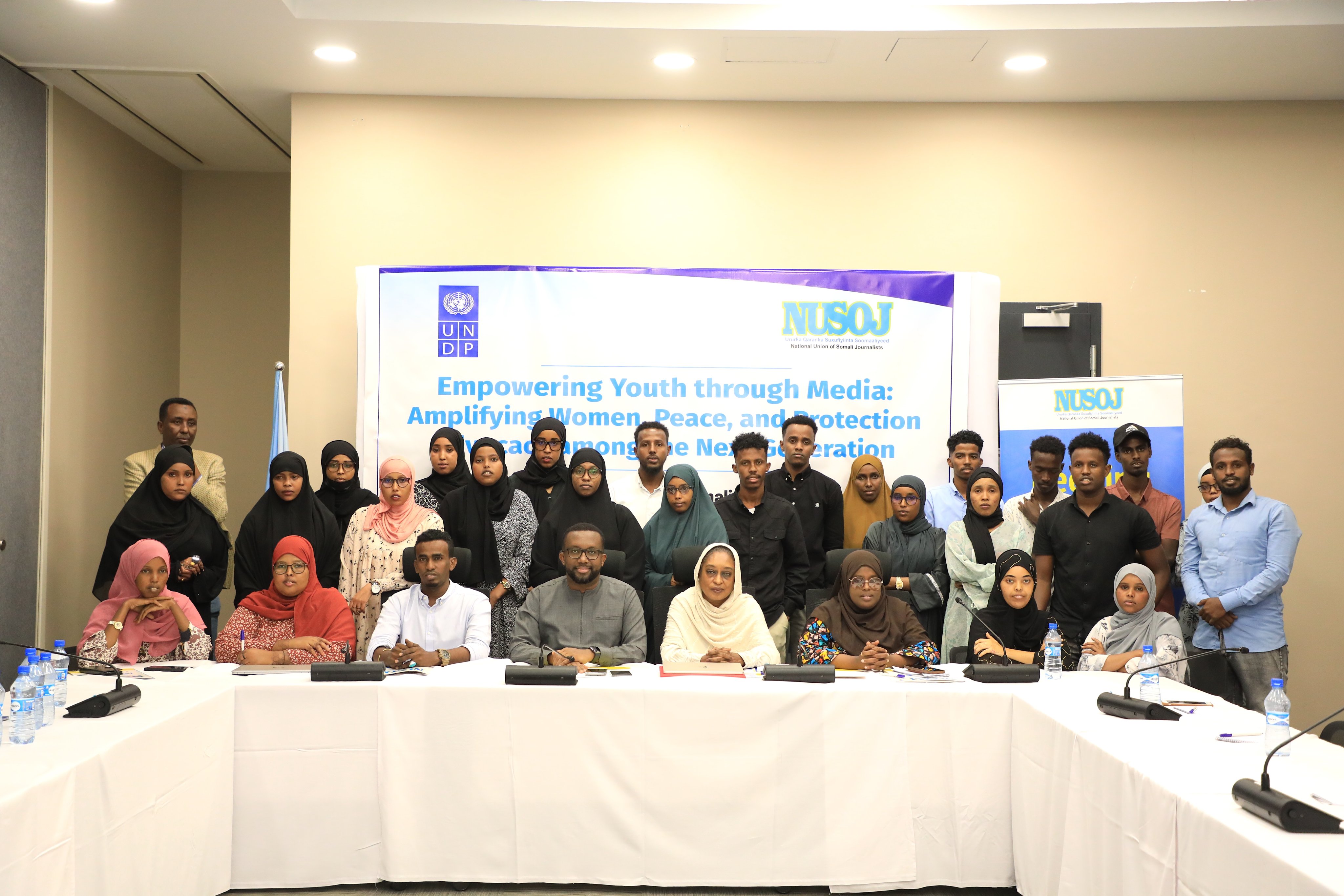
The first training, titled “Empowering Youth through Media: Amplifying Women, Peace and Protection Advocacy among the Next Generation,” took place in Mogadishu from 28 to 30 October 2023. It hosted a diverse group of 31 participants, including 18 women, who represented journalists, youth activists and women advocates. Notably, the majority of participants (92%) were young adults.
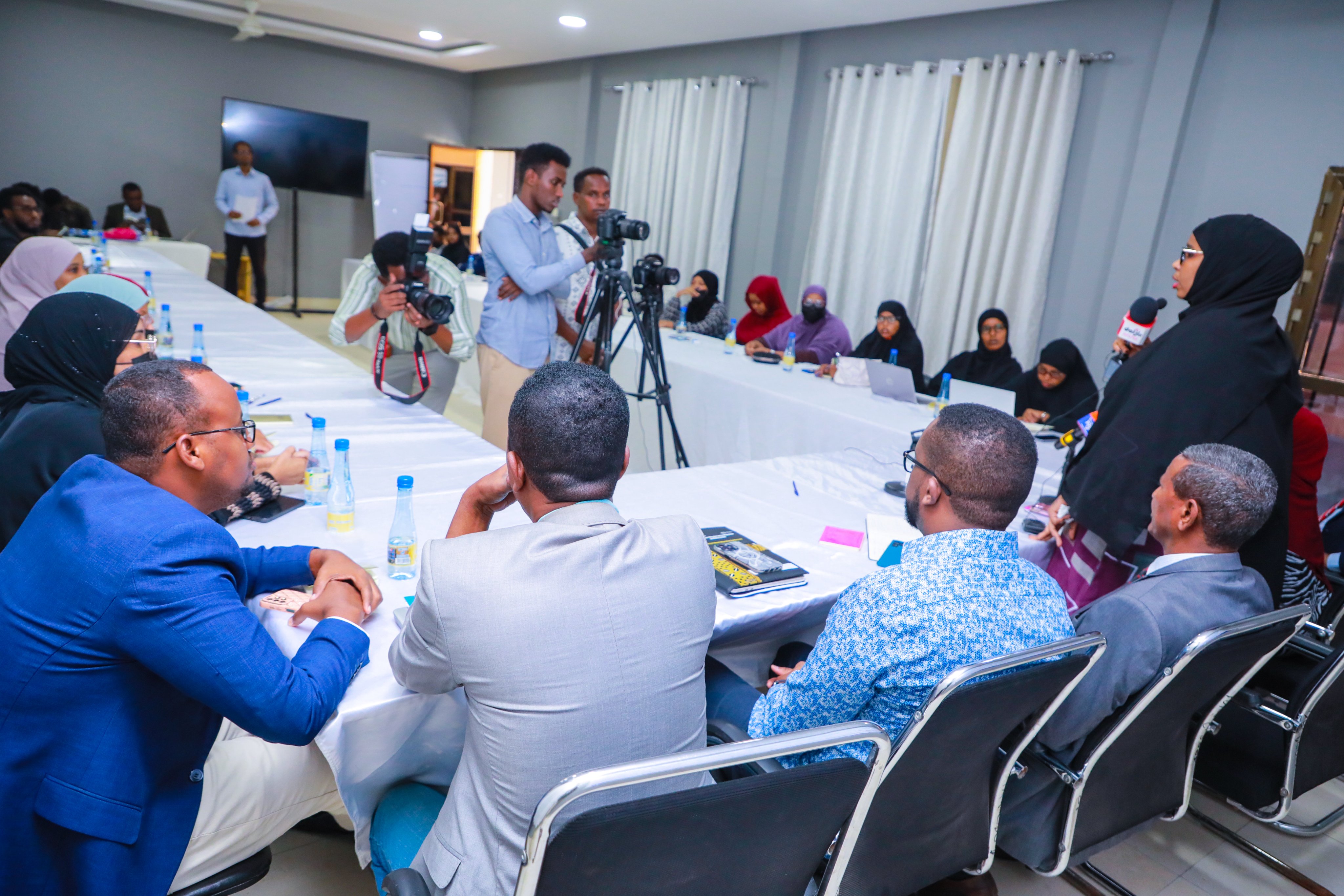
The second training, which took place in Garowe, Puntland, from 5 to 7 November 2023, boasted a diverse group of 38 participants, 22 of whom were women, reflecting a significant representation. Similar to Mogadishu activity, an overwhelming majority of the participants, comprising 89%, were young adults.
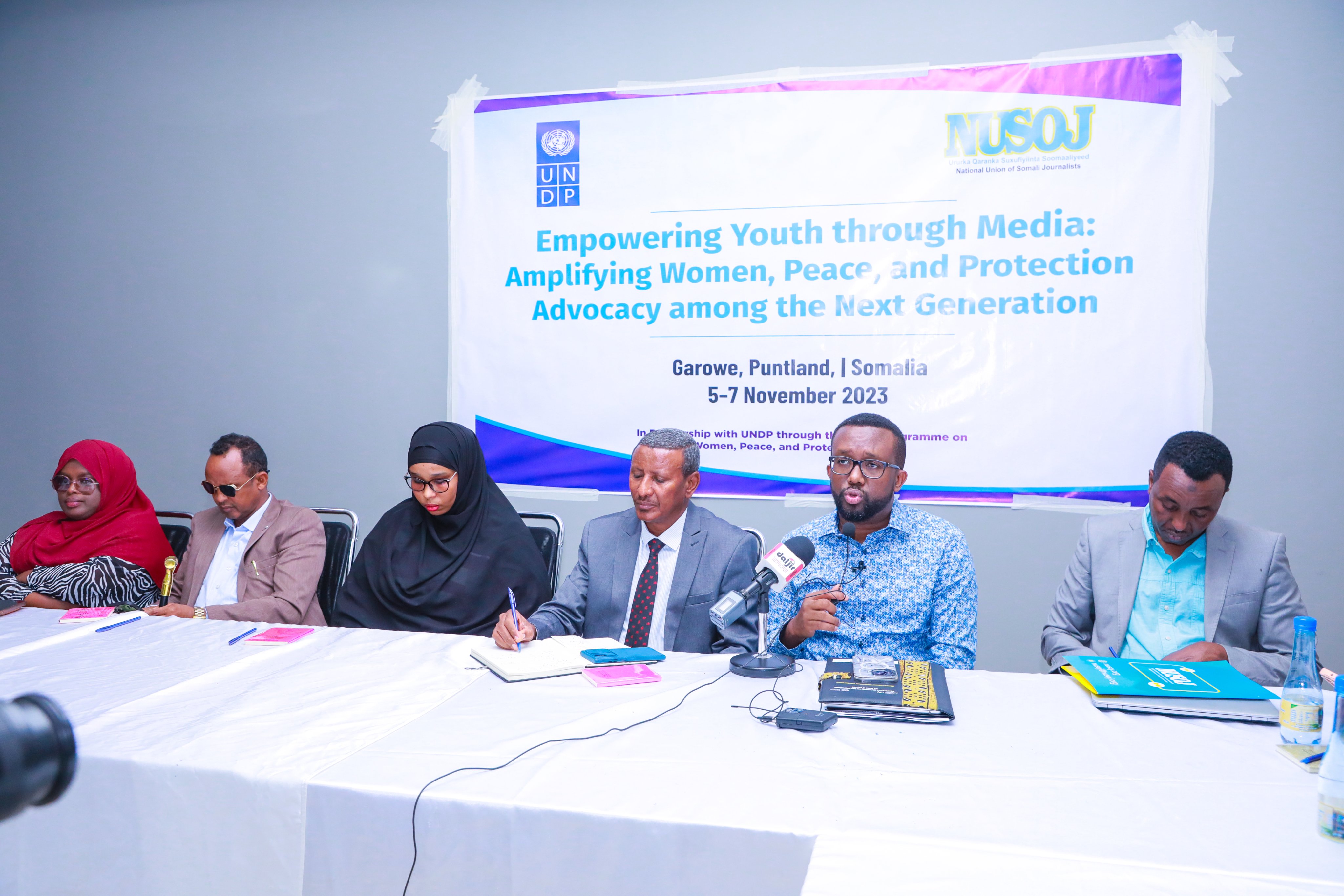
This high youth involvement, both as working journalists and activists, not only underscores the enthusiasm and active engagement of the younger generation but also highlights their crucial role in shaping and driving positive change in the realm of women peace and security.
“We strongly believe in the power of empowering change-makers. Through these capacity building activities, we have provided media professionals, women advocates and youth activists with the necessary tools and knowledge they need to drive positive change. By fostering collaboration among these influential individuals, we are working towards a society where women play a meaningful and valued role,” said Omar Faruk Osman, NUSOJ Secretary General.
These capacity building activities were carried out as part of the Joint Programme on Women, Peace and Protection (WPP), which receives support from the UN Peace-building Fund with the stated objective of equipping participants from various backgrounds with the necessary skills and knowledge to effectively use diverse media platforms, including social media, so that they can amplify the voices of Somali women, leading to political empowerment and sustainable peace.
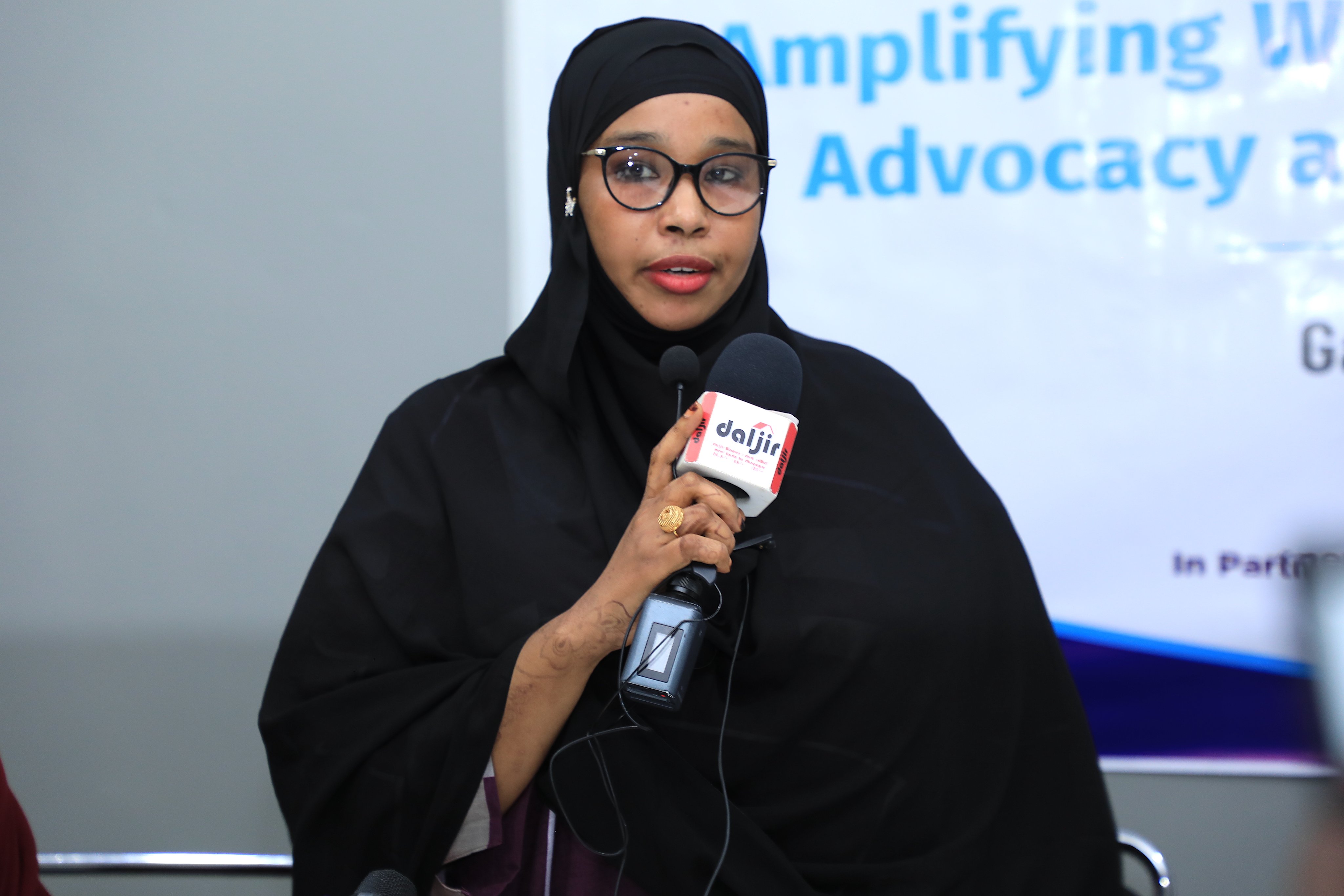
The initiative's strength lies in the diverse group of participants it brought together. By fostering collaboration between media professionals and advocates from youth and women's groups, the program empowered participants to use their new skills across various media platforms. This approach not only raises public awareness but also impacts policy-making and includes women in decision-making, a vital step towards advancing the WPS agenda in Somalia.
During the training in Garowe, Naima Abdirahman Guled, the Puntland Minister of Women Development and Family Affairs, emphasised the crucial role that media and youth play in advancing the WPS agenda. She underscored the need for media to prioritise and advocate for women's fundamental role in society, strengthening their impact and driving positive change in achieving peace, democracy, justice and security. She described media as a powerful platform to enhance women's political participation and empower them as peace-builders and decision-makers.
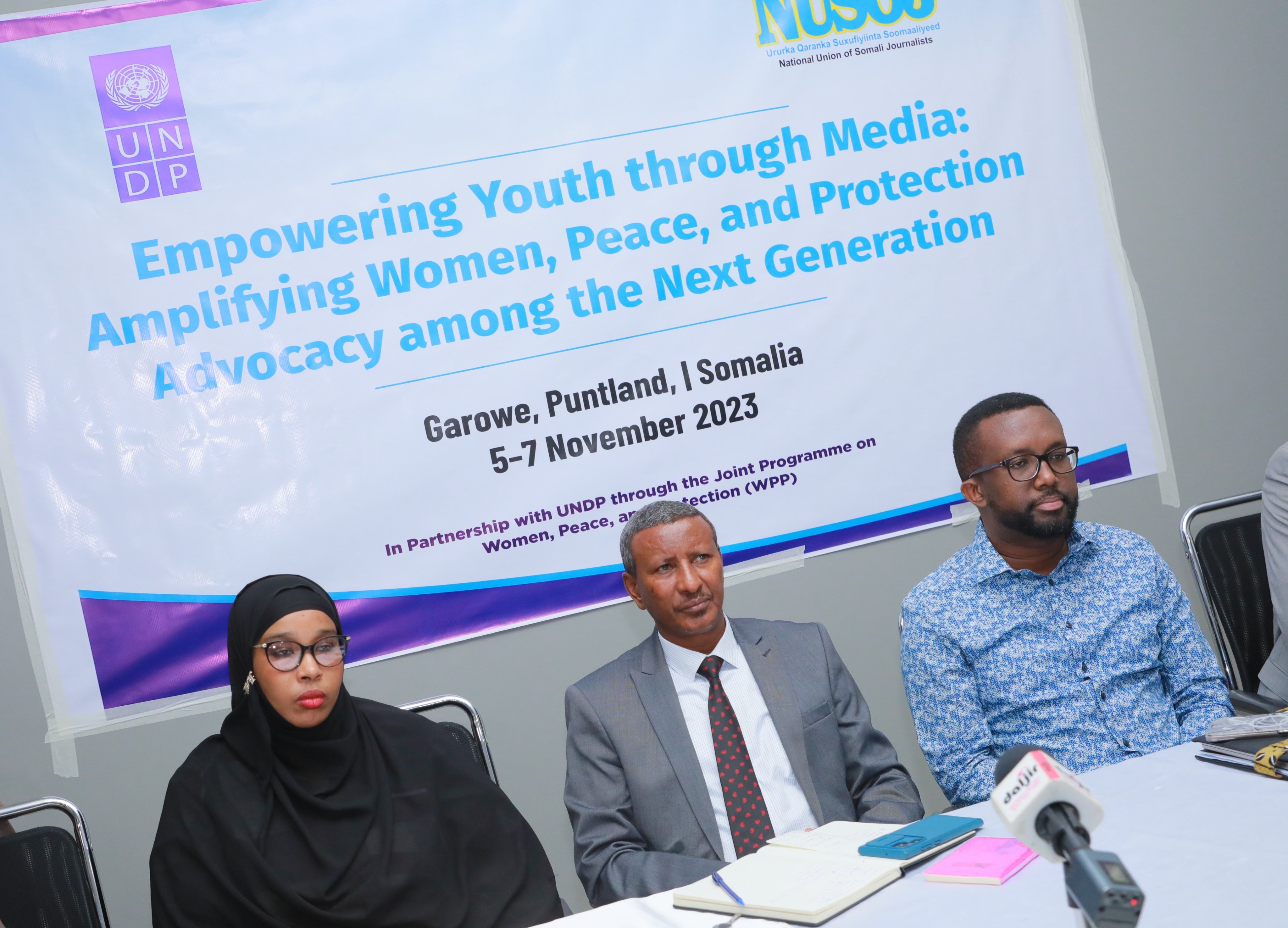
Mohamud Aidid Dirir, the Minister of Information of Puntland, also expressed similar views, emphasising the crucial role of news media and journalists in empowering women and supporting their involvement in politics and peace-building. He recognised the significance of heightening the voices of women advocates and youth activists to promote the process of democratisation, which is essential for establishing and maintaining peace and security.
“Journalists play a vital role in giving a voice to the experiences, struggles and triumphs of youth and women. Through direct linkages established within the scope of the WPS agenda, journalists hold the power to raise awareness, spark conversations and elevate the pursuit of progressive agenda-setting. This powerful alliance between journalists and these key groups paves the way for a more inclusive, equitable and peaceful society,” asserted Osman.
Throughout each training program, participants obtained valuable skills such as safe reporting and effective engagement with civil society organisations to reach vulnerable groups, gather credible testimonies, and utilise indicative data. By arming participants with these tools, the program empowered them as effective advocates and agents of change within their communities.

